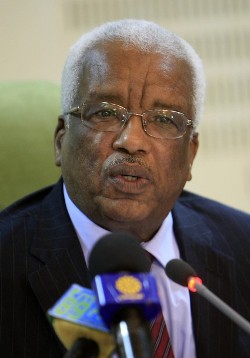Sudan asks China to settle bilateral trade in Yuan, pounds
December 28, 2011 (KHARTOUM) – The Sudanese government has formally requested from China that their bilateral trade be conducted in Sudanese pounds and Chinese Yuan rather than U.S. dollars.

“The dollar has become weak and is deteriorating” Al-Zubair said.
The governor did not say what benefits Sudan would get out of the switch but emphasized the rising economic power of China.
“We believe that very soon China will become the number one economic power in the world,” al-Zubeir said.
China is Sudan’s top trading partner and according to 2010 figures it topped $10 billion. However, following the secession of the oil rich-south it is likely that the number is significantly lower.
The state-run China National Petroleum Corporation (CNPC) has pumped billions of dollars into developing oilfields in Sudan, 80 percent of which lie in the south.
China depends for nearly five percent of its oil imports on South Sudan. It has recently intervened to press Sudan into reversing a decision it took to stop oil flowing through the pipelines that run in the north all the way to Port Sudan.
Sudan and its southern neighbor have yet to agree on fees that should be assessed for using the north’s pipeline and other oil infrastructure.
Since South Sudan became an independent state last July, Sudan lost its main foreign currency source causing a steep drop in the exchange rate of the pound against the major currencies and particularly the U.S. dollar.
As a result, the black market has flourished greatly despite government threats of severe penalties for those trading in hard currency outside the official channels.
Many people complain that on top of the many restrictions imposed on buying hard currency, it is very common for forex bureaus and banks to say that they do not have enough foreign currency in supply to sell.
The central bank governor pledged today to bridge the gap between the official exchange rate and the one on the black market to ensure stability.
(ST)
